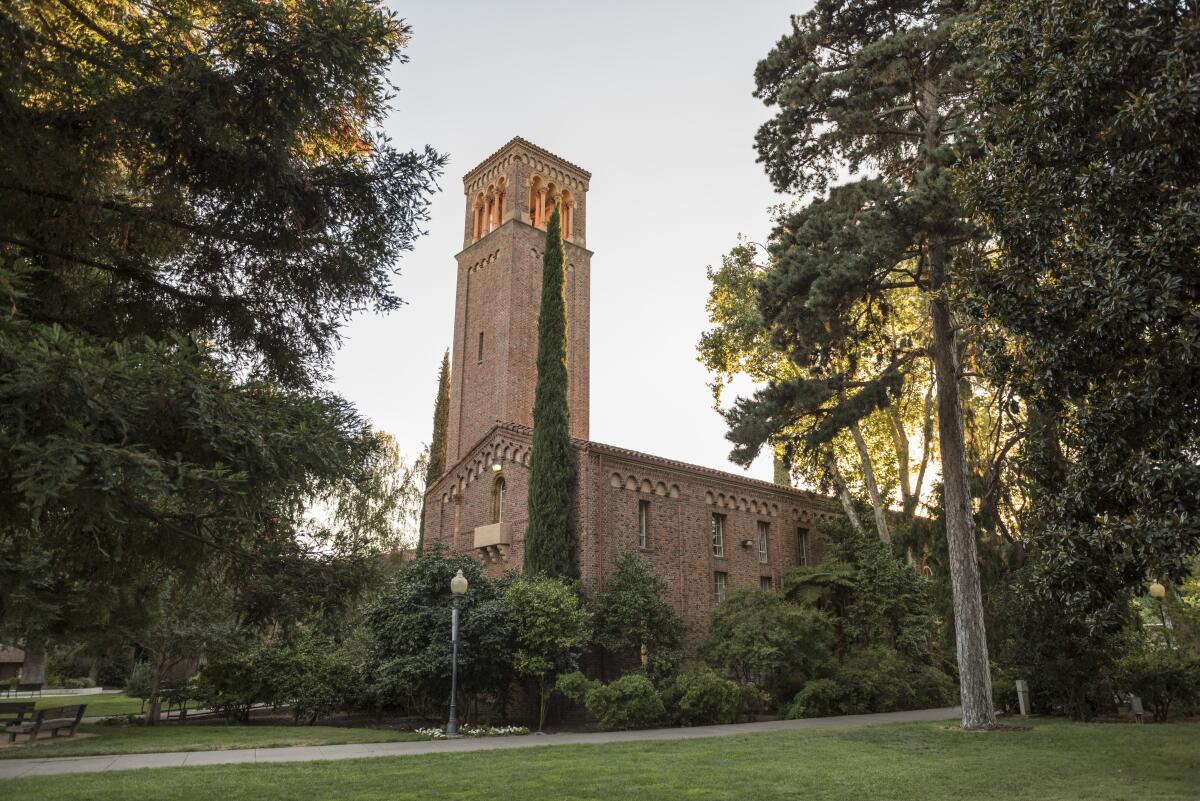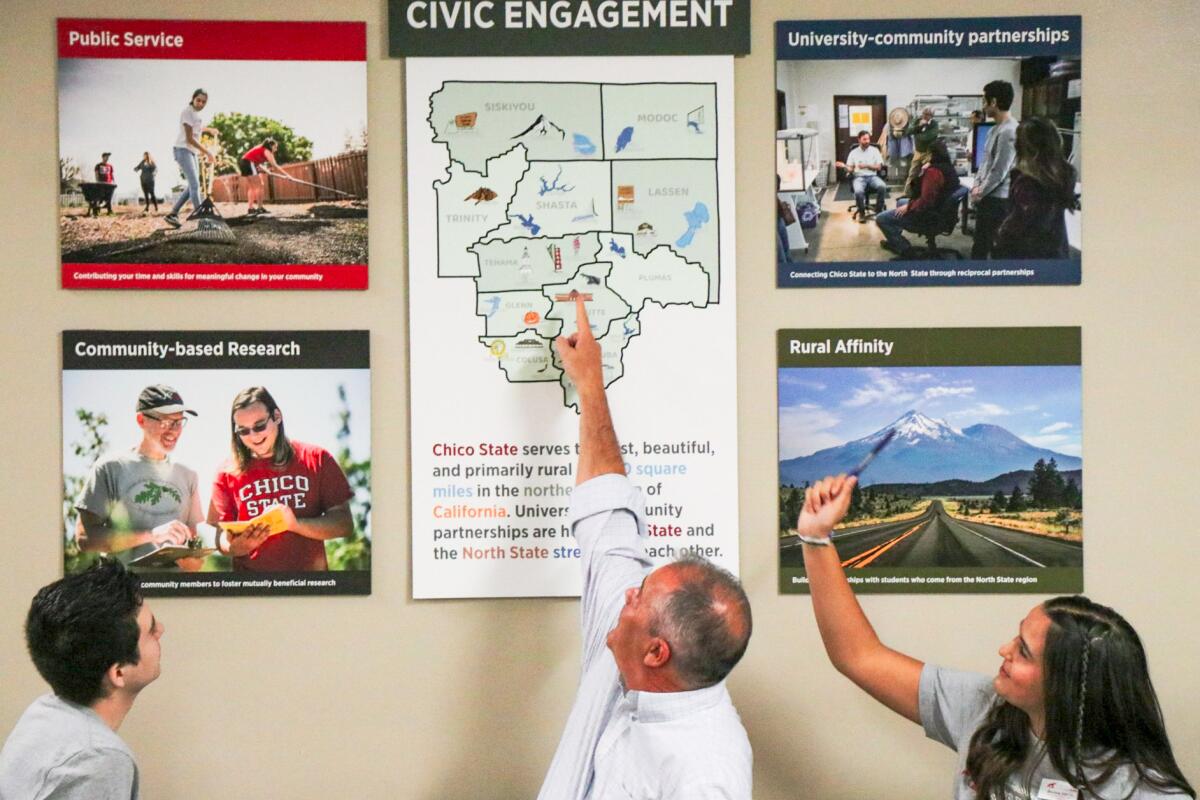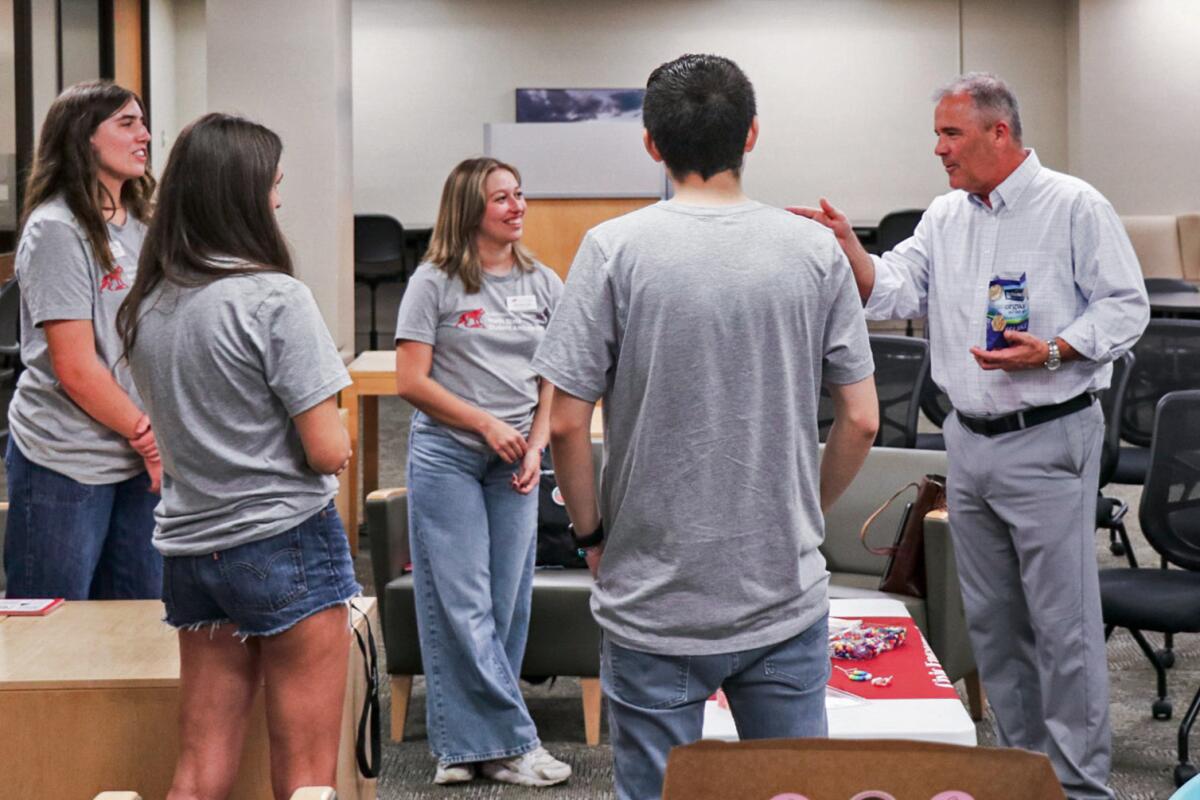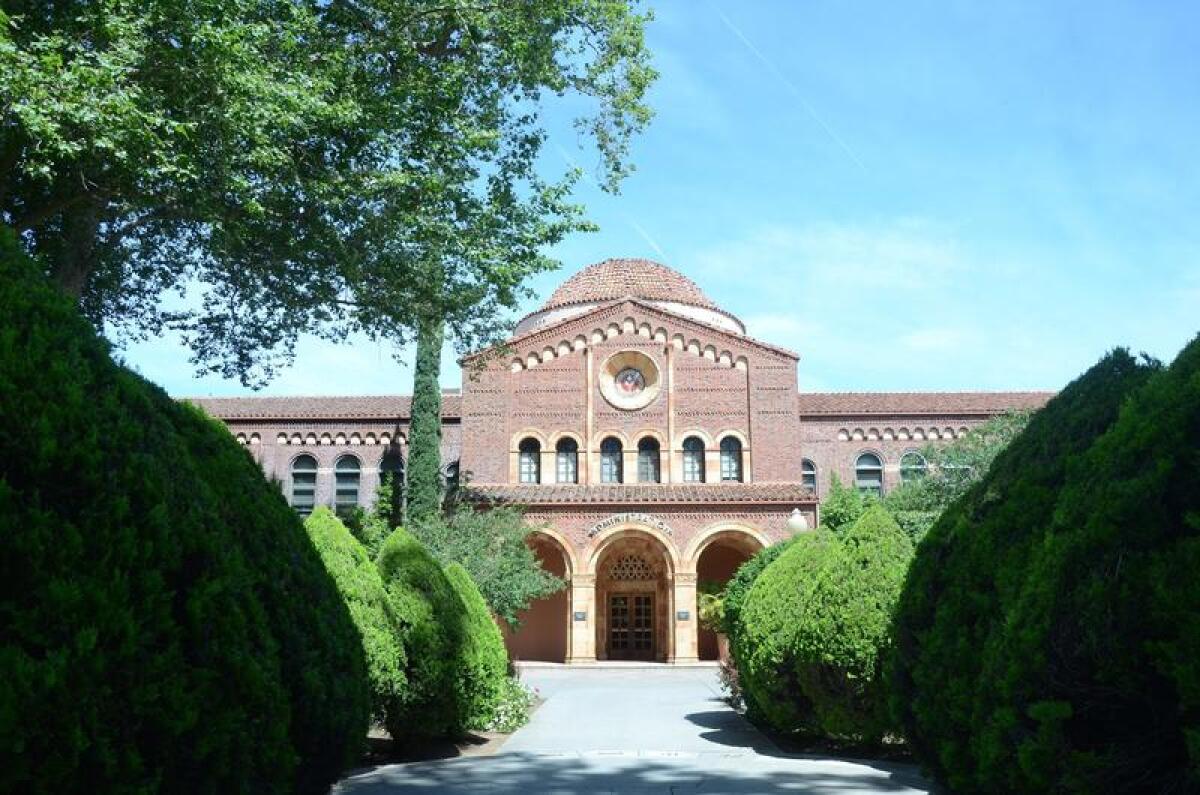Often overwhelmed on big campuses, rural college students push for support

- Share via
Most students in the Cal State Chico library were silently poring over books or computers one recent afternoon. But one group was tucked into a corner peppering the university’s president, Stephen Perez, with questions.
What’s the world’s smallest mountain range? The Sutter Buttes, about an hour south of Chico. The only incorporated city in Modoc County? Alturas. The biggest lake in Plumas County? Lake Almanor.
The students were testing Perez’s knowledge of the largely rural swath of the state served by his campus. Because that’s where all of them are from, towns such as Williams, MacArthur and Graeagle.

This mostly lighthearted mixer had a serious purpose: getting university leaders to see and support rural students. It’s part of a small but growing effort on some campuses to create a stronger sense of belonging for rural students, who drop out of college at higher rates than their suburban counterparts.
The university is trying to “change the narrative,” Perez told the 15 or so students in the library, where a small space has been set aside for a permanent rural student resource center. “I’d love to talk to you more about what we can do,” he said.
About a fifth of Americans live in rural areas, according to the U.S. Census Bureau. But few colleges have clubs for rural students to socialize and help each other through the challenges they face, obstacles such as feeling out of place, dealing with crowds or public transportation and even navigating busy freeways. Fewer still have physical spaces for those students to hang out.
With support hard to come by, rural students across the country have begun to build their own support networks, mostly in the last two or three years, sometimes without administration support. Most of these rural student clubs have emerged at Ivy League universities or other highly selective private institutions, and often have just a handful of members. But the trend is spreading.
At Cal State Chico, a group called the North State Student Ambassadors advocates for rural classmates and works to make them feel welcome. A map of the university’s 12-county service area, which covers 33,000 square miles, is displayed in their new library space. Three of those counties — Modoc, Plumas and Trinity — are 100% rural, census data show.
High school students across rural Northern California often have a low opinion of the university, said sophomore Brynna Garcia, one of the mixer event’s moderators, partly because — as Perez acknowledged — Chico recruiters rarely travel to those towns to speak with prospective students. Few of her classmates in Red Bluff, about an hour north of Chico, even considered Cal State Chico, she said.

Garcia said she chose Chico, the closest public university, mostly because snow had closed the roads as she was preparing to visit her other option, the University of Nevada, Reno.
Attending college just a quick drive from home has made the experience a little easier for Garcia, but, as with other students from small towns and tiny high schools, the transition to Chico’s 13,000-student campus has been daunting at times. A dormitory, for instance, might have more residents than a rural student’s high school had students.
“No one around you has the same experiences,” Garcia wrote in an essay for the Chico program. “They don’t know what [Future Farmers of America] is. They don’t realize your town doesn’t have a single Uber or Lyft driver. They’ve never seen the stars from their backyard or touched snow and they surely don’t have horses or cattle to tend to.”
The Chico library space might not be much, but it gives students an opportunity to take a break from the pressure of adapting to the different environment, said Karen Schreder, an assistant professor of education who works with rural students.
“They know everybody in their town, and they have been supported in their journey by everybody in their school and town,” Schreder said. “And then they come here, and they’re, like, ‘What do I do on Sunday? Where do I go?’”
At Brown University in Rhode Island, the rural club has held sessions on how to use the bus system and how to navigate Providence, said Eliana Hornbuckle, a junior from the small town of Nevada, Iowa, population just under 7,000. Few Brown administrators come from rural areas, she said, so it’s actually better for rural students to do this on their own than for universities to step in, said Hornbuckle, one of the club’s leaders.
“I don’t think it would be as successful if it were started by the college or university itself,” she said. “I think it would feel weird if the university were creating a space for us to meet. It would be too formal.”
Top colleges such as Yale and the University of Chicago have made concerted efforts to recruit applicants from rural areas, but students at some institutions say the attention ends there. Rural students, once they arrive on campus, often feel as if their colleges forget about them, noted Ty McNamee, a University of Mississippi assistant professor of higher education who studies rural students. A club can help alleviate that angst, he said.

“A lot of times these students have the same cultural backgrounds and are able to support one another,” said McNamee, who grew up on a Wyoming ranch and founded a rural student group while attending Columbia University. As a student who moved to New York City from a town of 600, he said, “being in that bubble where I felt validated was really helpful to me.”
Students in the few official rural clubs are trying to expand those opportunities to more universities and colleges. Madison Mellinger, then a senior at Princeton University, organized a two-day virtual conference attended by 80 to 90 students last February to help students organize rural clubs. Topics included “imposter syndrome and the rural identity.”
Nobody knows how many rural student clubs exist, Mellinger said, but the most successful ones have forged connections with their school administrations that have resulted in financial support.
Servando Melendrez, a 19-year-old Cal State Chico sophomore from the Lassen County town of Westwood, said he had never met other rural students on campus before joining the university’s North State Ambassadors program.
“It’s definitely a big step for Chico to do something like this,” said Melendrez, whose hometown has about 1,500 people and whose high school class had about 15 students. “It does feel good that the university is looking out for us.”
Inspired by the Chico initiative, Virginia Tech plans to create a physical space for rural students, said Amy Azano, a professor of adolescent literacy and rural education there. Even though the 38,000-student university is surrounded by rural communities, she said, it can still be overwhelming for rural students.
Chico’s rural student group was a big reason 19-year-old Sophia Dutton, from the Plumas County town of Graeagle, transferred to Chico after a tough freshman year at a big San Diego campus. Her classmates and professors in San Diego didn’t understand how her rural upbringing influenced her life and education, Dutton said, and the campus did not have a rural student club.
Being closer to home and rural California has been a relief, she said.
“I have never been a city person and I know that,” Dutton said.
As the Chico event with the president wrapped up, students mingled and discussed weekend plans. A few planned to drive home to their small towns, where they said the remoteness is part of the draw.
“I’m going to go home and look at the stars tonight,” Dutton said.
This story was produced by the Hechinger Report, a nonprofit, independent news organization focused on inequality and innovation in education.
More to Read
Sign up for Essential California
The most important California stories and recommendations in your inbox every morning.
You may occasionally receive promotional content from the Los Angeles Times.










